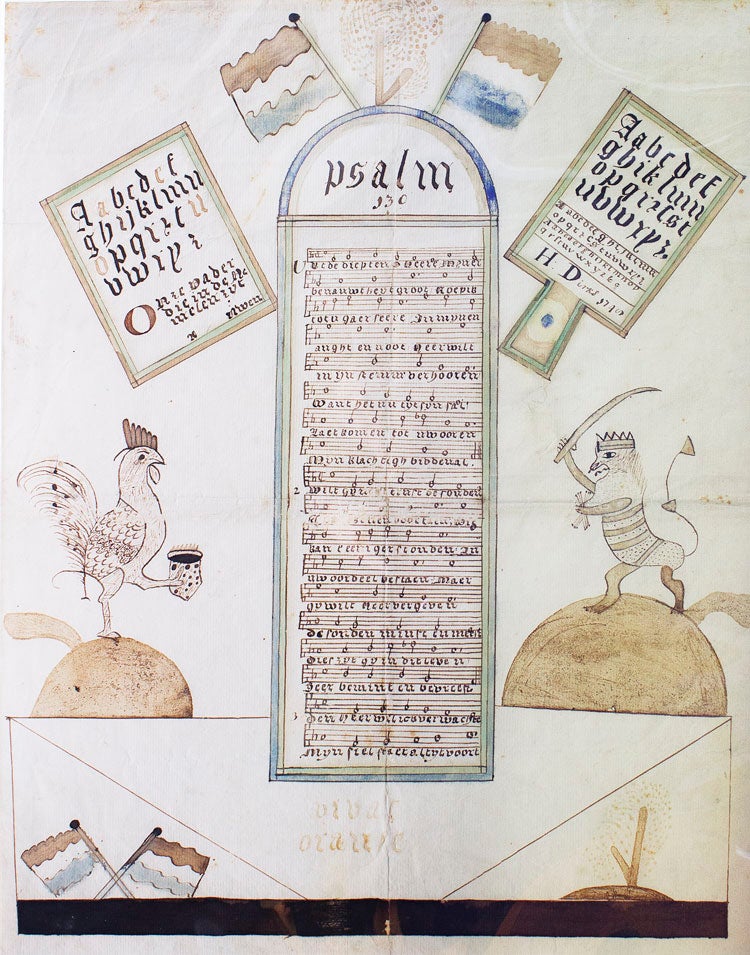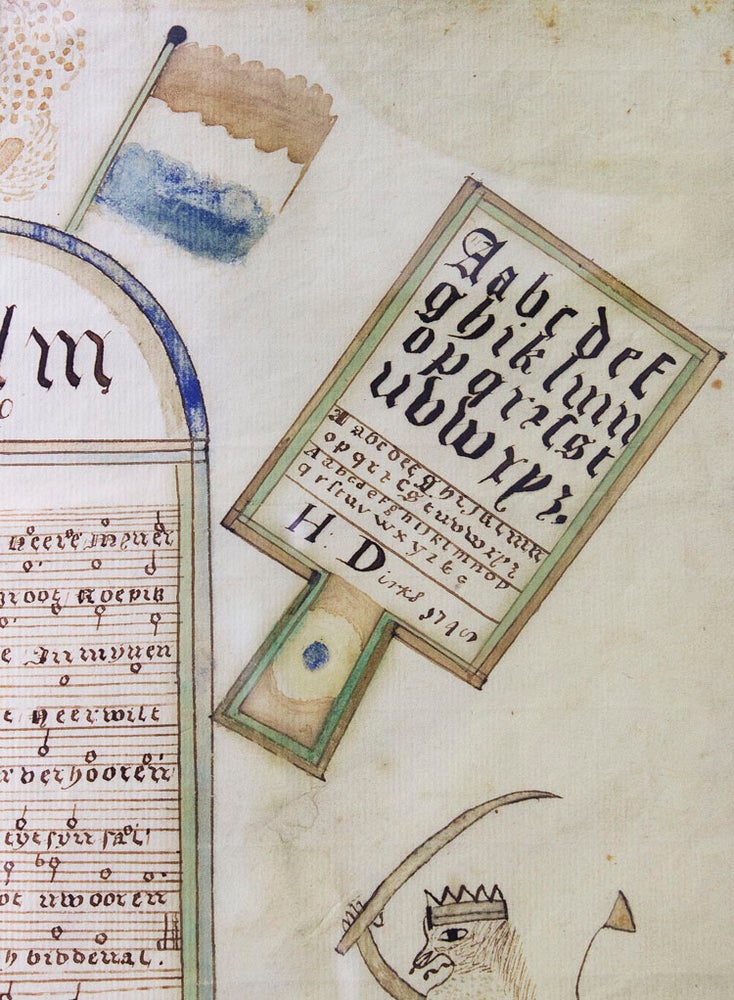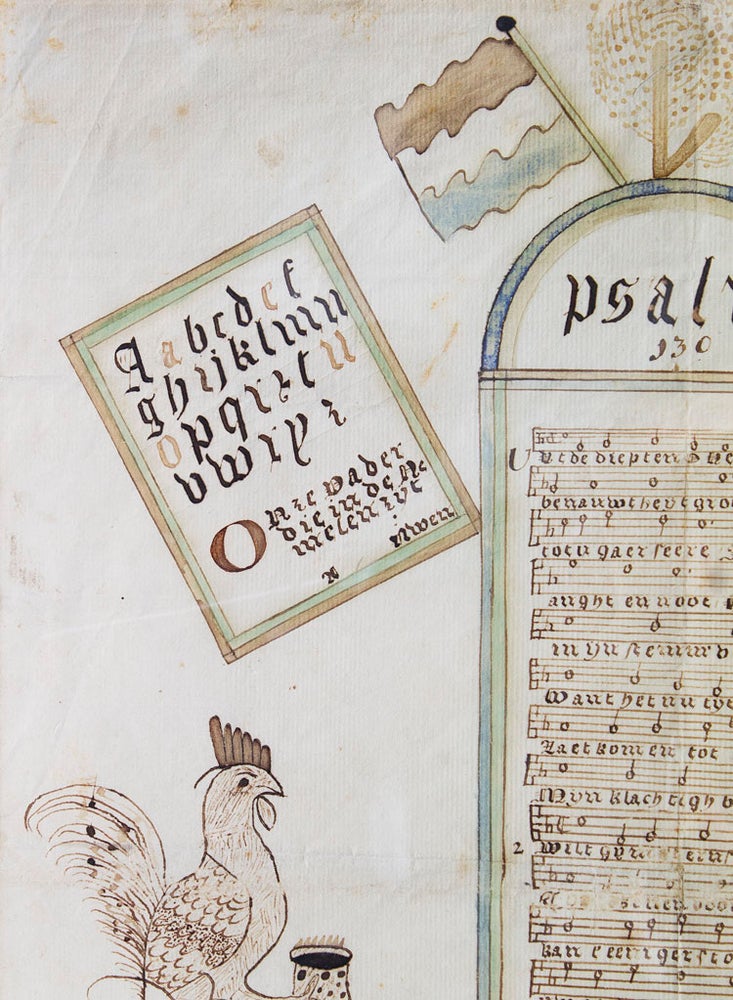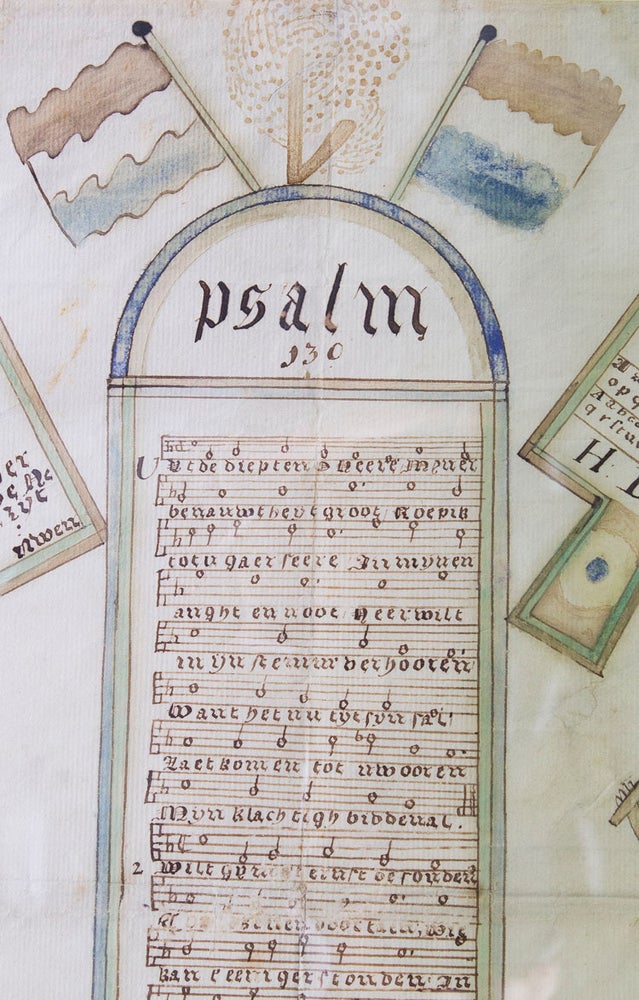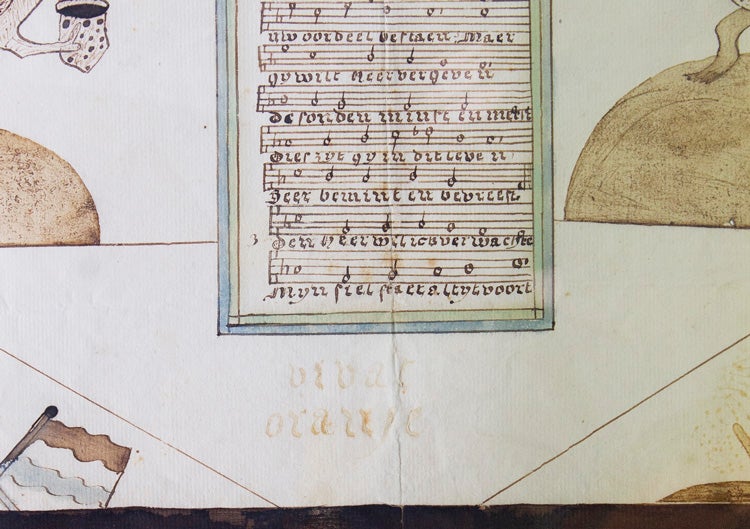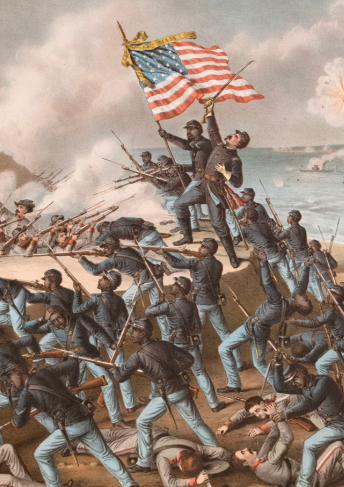Vivat Oranje
Dutch-American Illustrated manuscript broadside of Psalm 130 with allegorical elements.
[The colony of New York]: 1746.
Price: $18,500.00
About the item
One page, manuscript in ink with watercolor drawing dated 1746 on laid paper watermarked Pro Patria. 1 vols. 15 x 12-1/4 inches. Vivat Oranje. Some fading, three small archival repairs to verso. Matted. Very good.
Item #314744
An allegorical depiction of Dutch-American cultural heritage and a plea for assistance in troubled times.
The central motif is a manuscript musical setting based on a Dutch text of Psalm 130, De profundis: Uyt de diepten, o Heere, Myner benauwtheyt groot, roep ick tot u (Out of the depths have I cried …) in 18 lines. This is surmounted by a flowering tree and crossed tricolor flags, flanked by two horn books, on the left hand an alphabet and the beginning of the Lord’s prayer, Onze vader die in de Himelen zut, signed Irwen; and on the right a horn book with handle bearing three alphabets in different styles and sizes, and signed H. Dirks 1746.
To the right is an unusual interpretation of the rampant lion of the house of Orange Nassau, standing crowned upon a large apple (with stem), right forepaw raising a sword, the left with a clutch of arrows at the heart. Opposite, atop another apple, strides a Yankee rooster proffering a goblet. The slogan Vivat Oranje (Long Live Orange) appears at lower center. At the bottom the motif of the crossed flags and flowering tree is repeated.
Dutch culture persisted in New York for generations after the cession of New Amsterdam to the English in 1664. At a time of political tensions during King George’s War, and with the prospect of an attack on the French in Canada, the choice of the Psalm suggests the artist is remaining true to a Dutch heritage while desperately supplicating for assistance in isolation. The first period of Dutch printing in north America lasted roughly a century, from the 1690s to the 1790s, and scant printed materials survive. Vernacular manuscript material from the Dutch colonists is rarer still.

